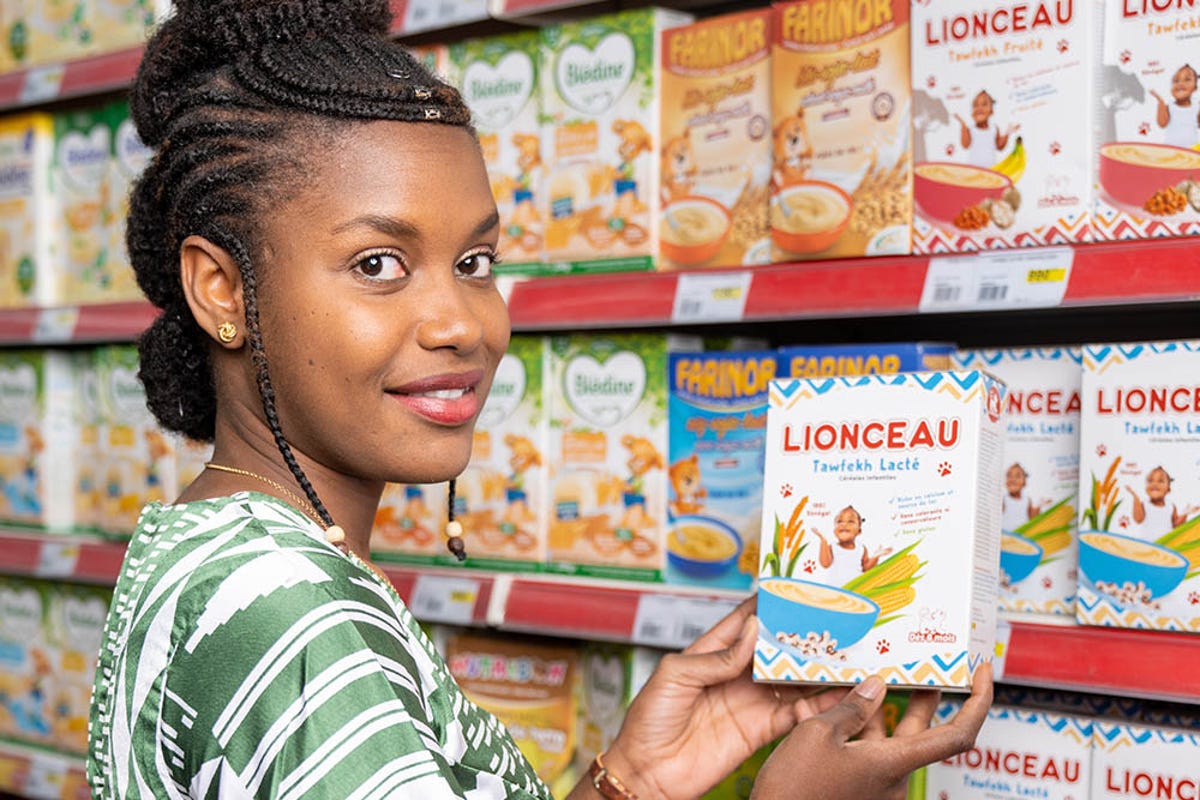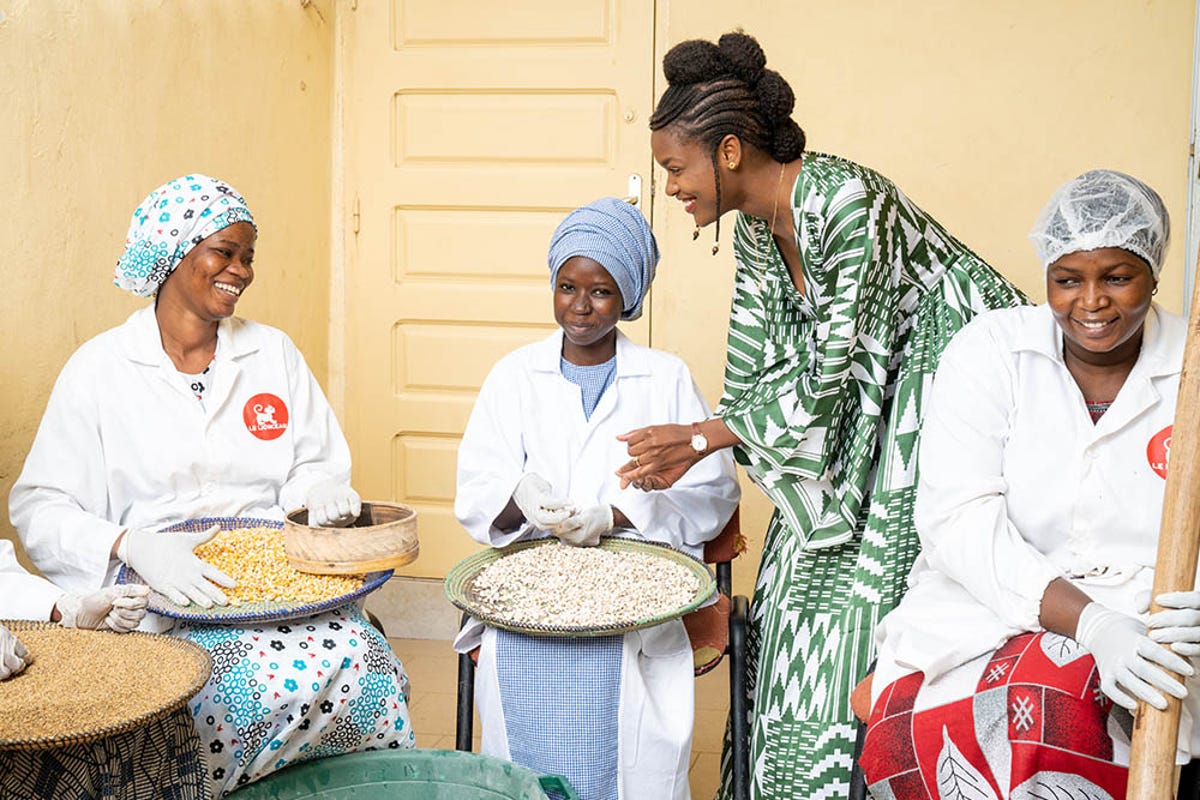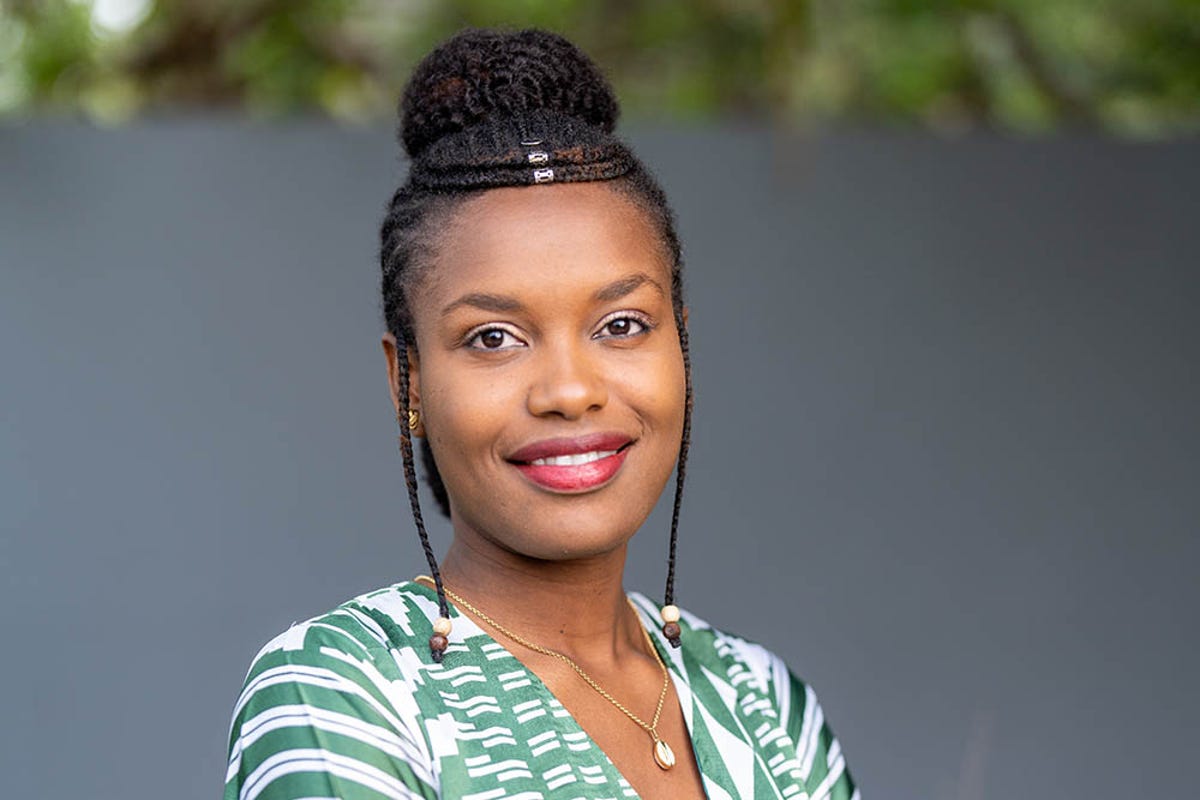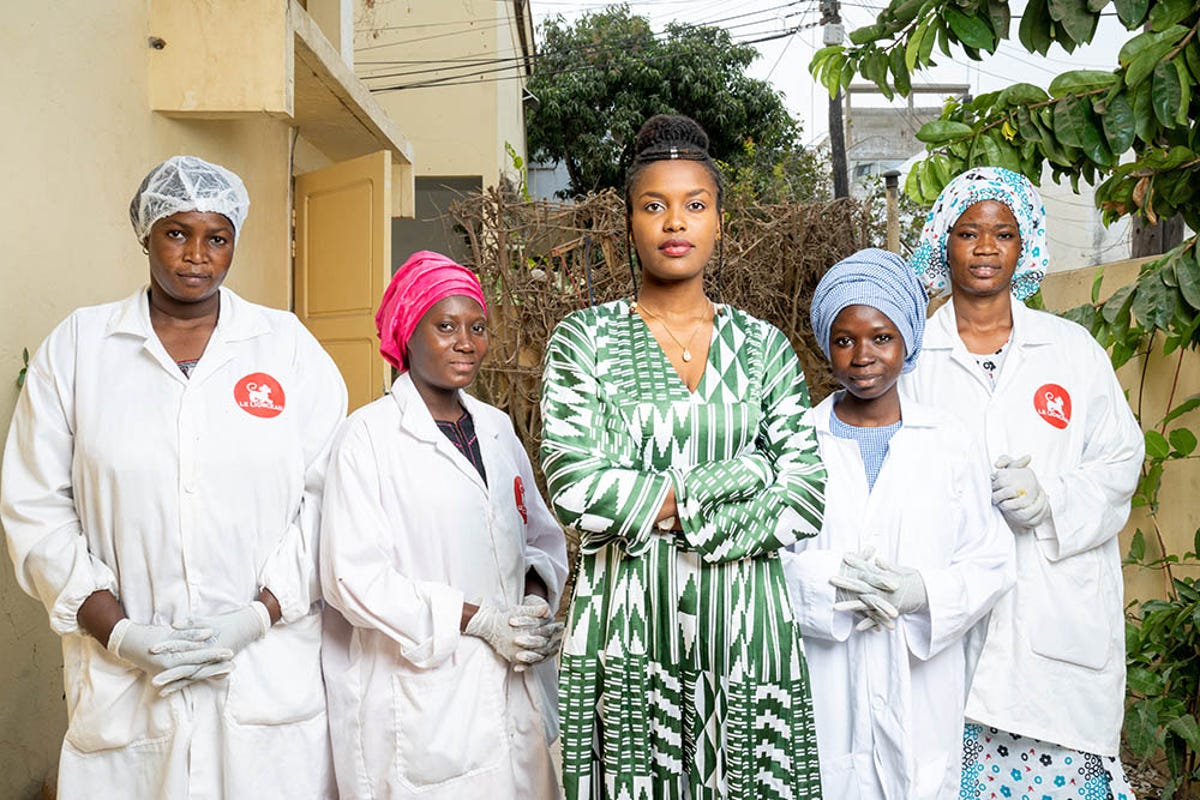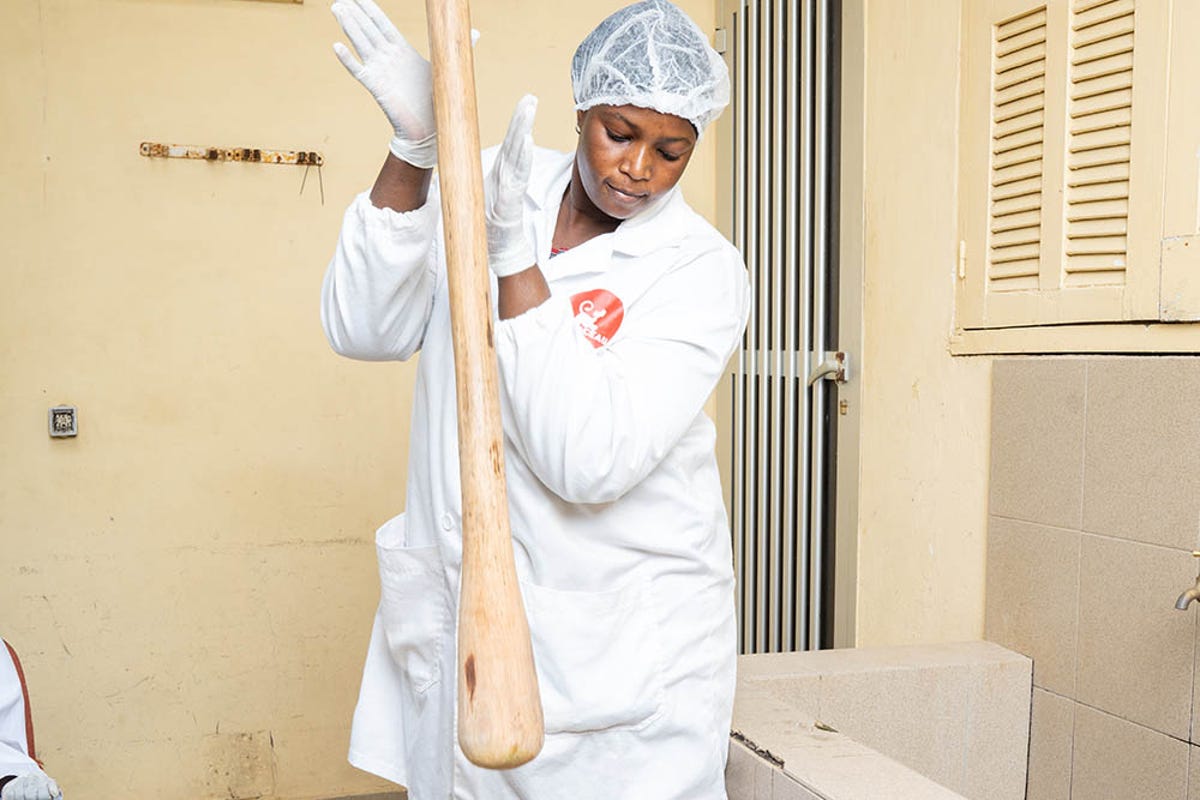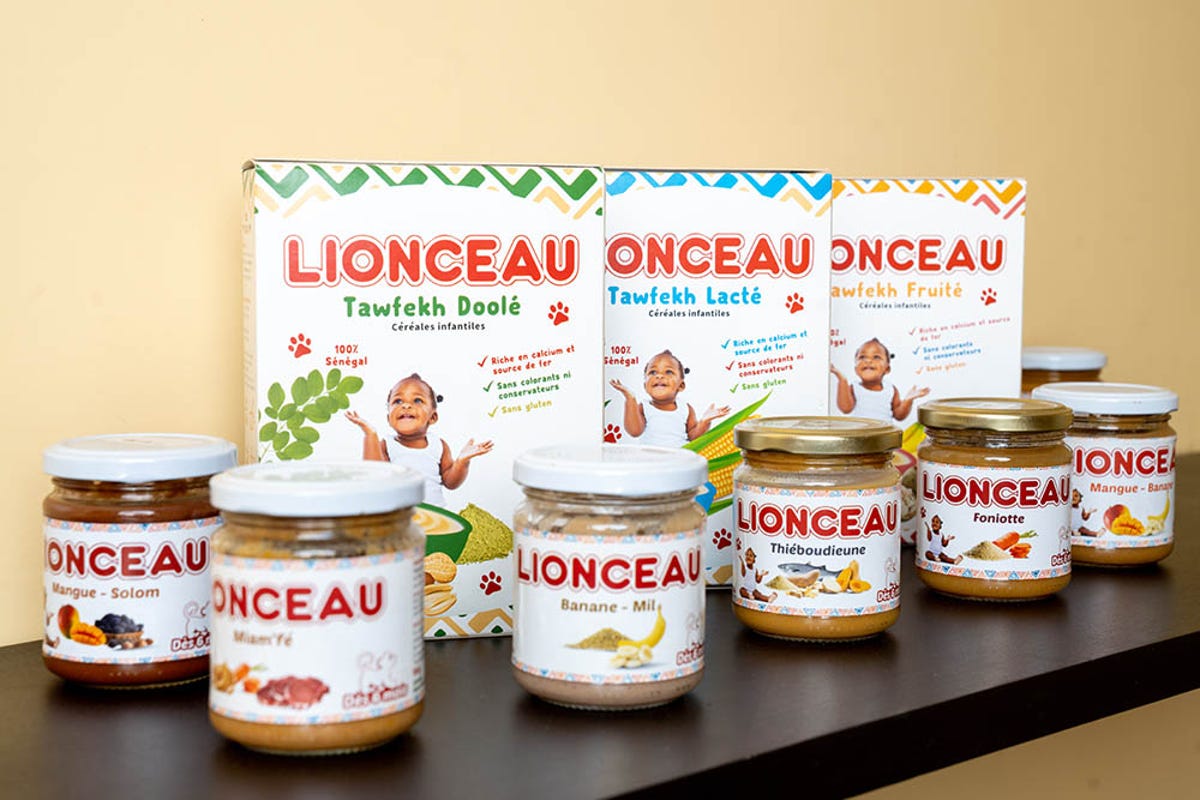Fellow Portrait
Siny Samba
Le Lionceau
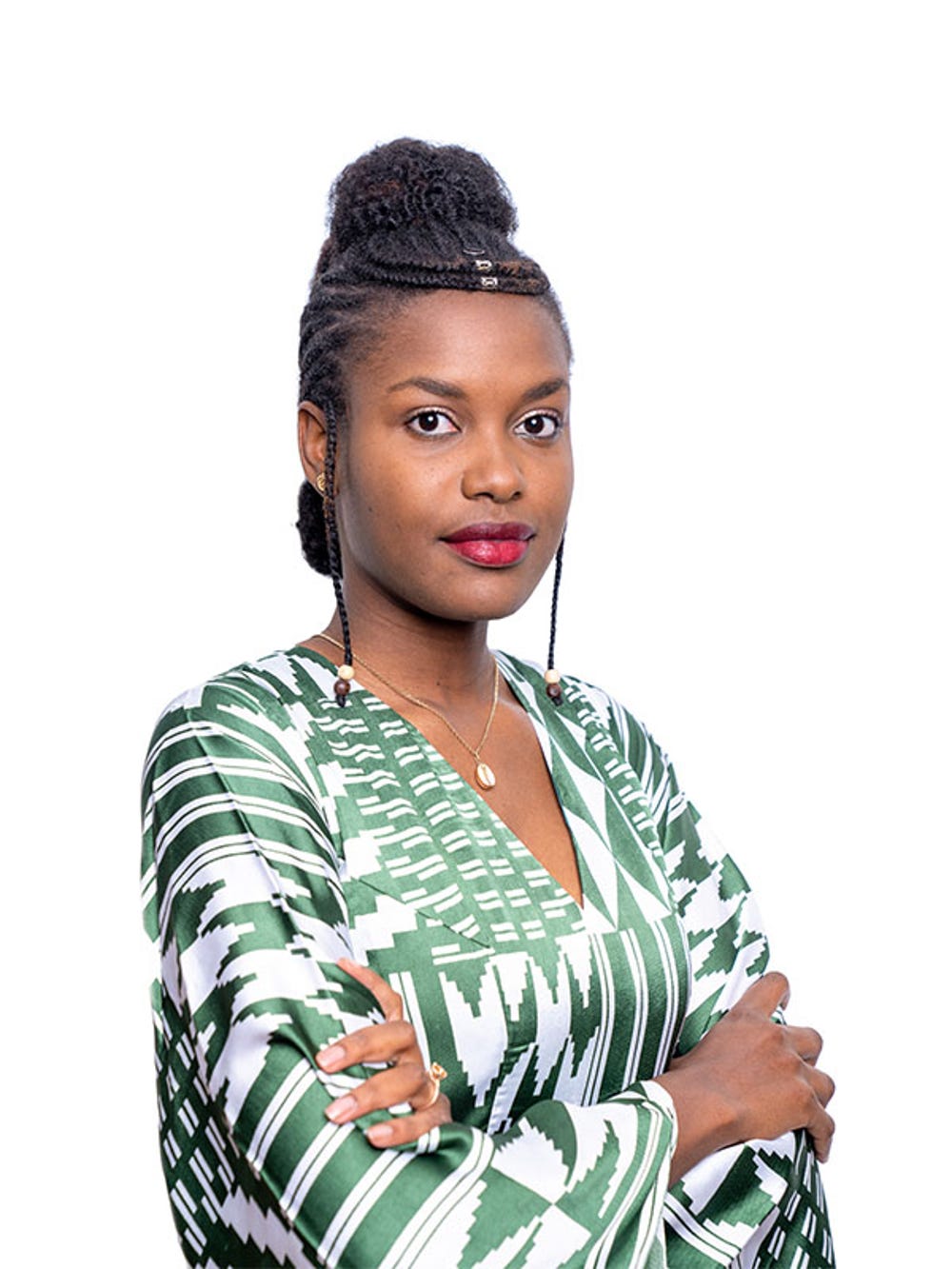
Le Lionceau produces nutritionally rich baby food, adapted to local tastes, using 100 percent local cereals, vegetables, and fruits.
Francophone Sub-Saharan Africa
Senegal
Fellow
2023
Updated March 2023
A vulnerable food supply puts Senegalese infants at risk
As a net food importer, Senegal is vulnerable to food insecurity and economic and political shocks such as the effect of the war in Ukraine on the global food supply. The 600,000 babies born in Senegal every year are especially vulnerable, since the country imports up to 90 percent of its baby food. The available baby food is not based on local ingredients and creates an imbalance in local value chains.
In 2017, food processing engineer Siny Samba returned to Senegal after working for a baby food company in France. She had studied infant nutrition and noticed the distinct lack of diversity of baby food on Senegal’s grocery store shelves. She also observed that smallholder farmers often had difficulty selling what they produced, leading to crop losses. “I thought, why not try to minimize these losses?” she says. Yet another need emerged as she began talking with mothers about how they fed their babies. “One woman told me her child never drinks water. She only gives her baby soda and juices.”
One day a week, my grandmother cooked a big meal and called the children who were living in the street to share it. I grew up in this environment of helping others. My grandmother used to tell me that sometimes life can be unfair but we all have the power to change things.
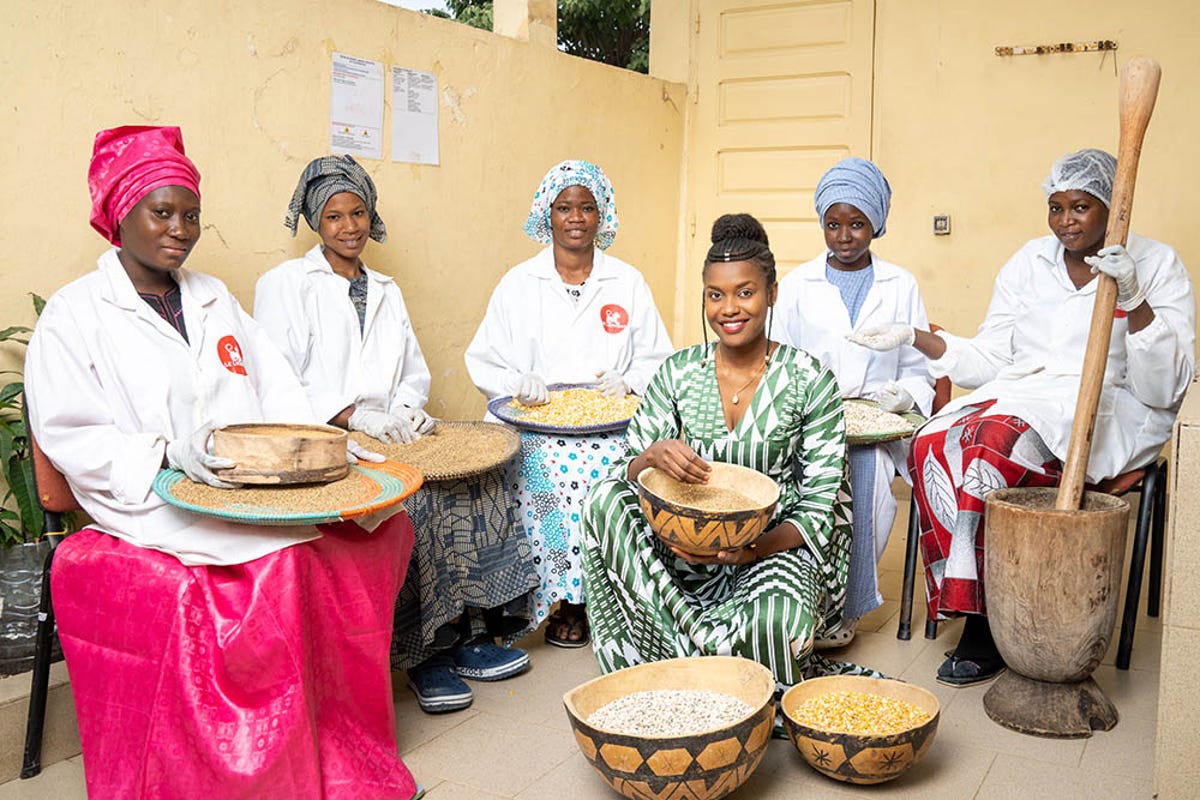
Baby food completes the circle from farm to jar
Siny started Le Lionceau to expand the selection on store shelves with nutrition-packed, locally sourced baby food based on local recipes while addressing some of Senegal’s small-holder agriculture challenges.
To tackle the problem of poor infant nutrition, Le Lionceau gives educational workshops to help parents understand nutrition and improve their babies’ health. “We go to both urban and rural areas to train and to sensitize people about the importance of the first 1,000 days,” Siny says, including the importance of breastfeeding and how mothers can use local crops to make food for their babies and themselves.
Working with farmers, the company transforms what would have been wasted into a valuable food product. “In the mango fields, 60 percent of the mangoes usually would be wasted—they wouldn't be bought, or they would just stay there.”
Most other companies making baby food use imported wheat. We use 100 percent local cereals and fruits; our mission is to strengthen the local food value chain while improving the nutritional status of babies.
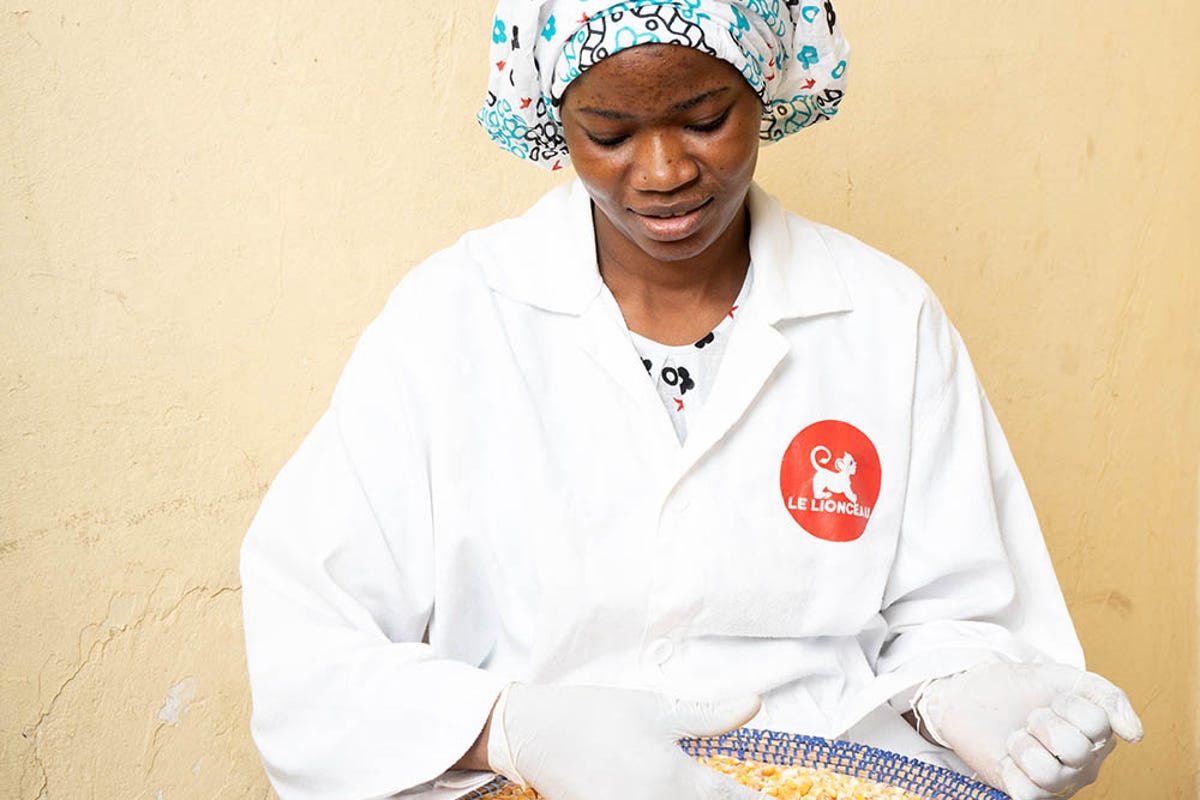
All babies deserve to grow up healthy
The company’s impact touches many stakeholders: It supports 25 employees and buys crops from cooperatives of more than 5,000 farmers. “We have an impact in collaborating with the farmers,” Siny says. “They receive more revenue and a stable income because they know we'll buy every month. We need tons of cereal!” The company also empowers more than 500 local women, including participants in nutritional education workshops and the women’s groups that become part of Le Lionceau supply chain. “We teach them how to process local crops to maintain quality and produce a final product that fits our standards for baby food.”
Le Lionceau’s high-quality baby food so far has nourished 20,000 children and Siny aims to nourish millions more. In West Africa alone, 320 million babies are born every year. “The market for baby food is big. Today we are in Senegal, but people have contacted us from Ivory Coast and Ghana because they want to have our product.” The company plans expansion when it is able to increase manufacturing capacity. “For next year, our objective is to have our own factory and increase production so we can satisfy the local market in Senegal, but also begin to export to neighboring countries.”
The company also plans to extend its product range to work with NGOs and government for the food aid market by developing more affordable and accessible locally sourced baby food. Eventually, Siny envisions expanding beyond Africa to Europe and America, bringing the taste and nutrition of locally sourced food to the spoons of millions more babies of African diasporas.
I can make something that changes the lives of children and also creates a circular and inclusive business, where we buy from farmers and women’s groups to transform the local economy. It’s a win-win situation.
